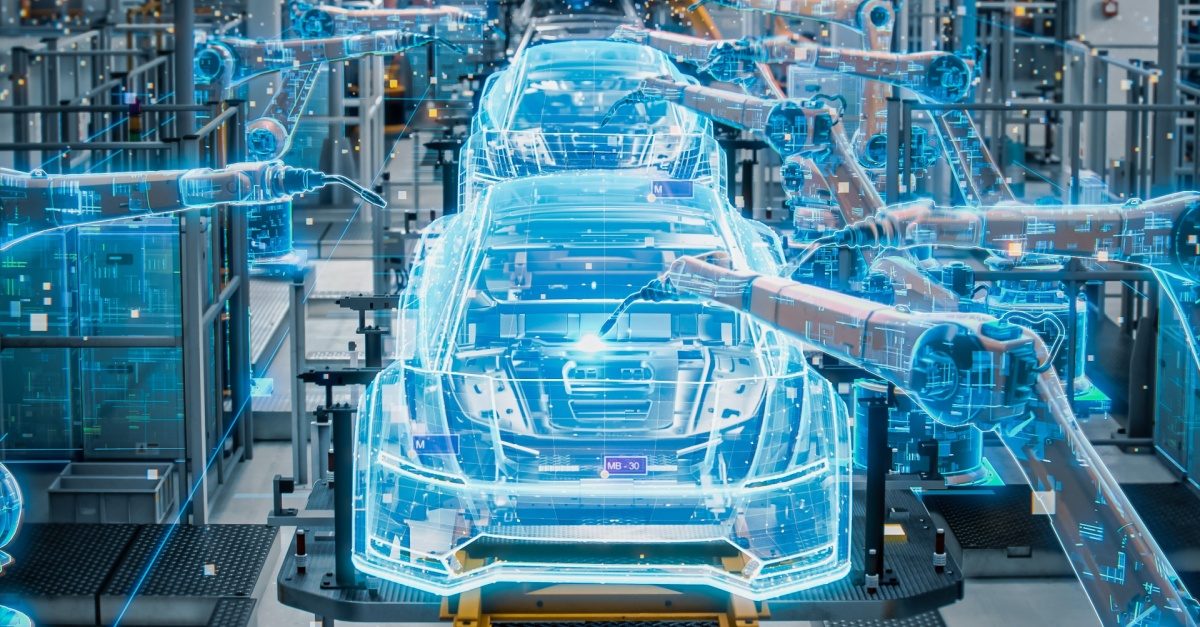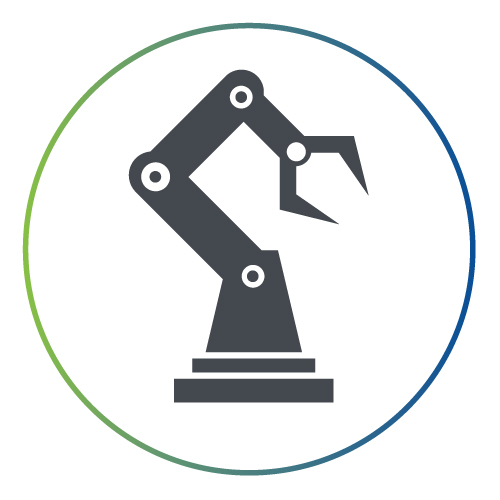
Adopting Industry 4.0 in Automotive Manufacturing
The automotive manufacturing industry is undergoing a massive change with the introduction of Industry 4.0. Learn how this digital transformation will impact companies, as well as its benefits and adoption challenges.
The State of Automotive Manufacturing in the U.K.
Industry 4.0 is all about digital transformation and interconnectedness. It’s a union of physical assets and modern technologies, like artificial intelligence (AI), robotics and the Internet of Things (AI), to create interactive, responsive, and efficient solutions or models.
Automotive manufacturing involves all these technologies in autonomous vehicles. More driverless cars are on the roads in the U.S., but the opposite is happening in the U.K.
While several companies have manufactured self-driving cars, the country has moved slowly in their adoption. They’re currently not permitted on Britain’s roads, but this could change as the legal framework for Connected and Automated Mobility (CAM) goes through Parliament. If approved by the end of 2024, driverless cars will be a familiar sight on British roads by 2026. Whether the decision will be good or bad is a matter of future debate.
Key Technologies Driving Industry 4.0
The following core innovations will drive automotive technologies amid the manufacturing revolution:
- Virtual and augmented reality: The application will give drivers real-time navigational guidance about their surroundings.
- Artificial intelligence: Implementation can optimise manufacturing operations.
- Internet of Things: Connected vehicles can collect real-time data and use it to identify driving behaviours, detect collisions and contact emergency services.
- Digital twins: Manufacturers can create a virtual vehicle replica and use it for simulation in an online environment.
- Big data analytics: Automakers leverage them through embedded sensors in driverless vehicles that send all types of data to drivers.
- Autonomous robots: In logistics, they help move parts or materials from storage areas to where needed.
Manufacturers mesh all these technologies into a single autonomous car to reduce driving errors and risky driver behaviours that can cause accidents.

Benefits of Implementing Industry 4.0 in Automotive
Technology has improved people’s lives in many ways. The incoming innovation in the automotive industry boasts the following benefits.
Improved Production Efficiency
Construction is one industry that will greatly benefit from this automotive upgrade. Advanced models with cutting-edge technologies like AI and robotics can significantly enhance supply chain efficiency and connectivity.
The construction industry uses a wide variety of automotive machinery, from dump trailers and flatbed trucks to bulldozers and excavators. Because this equipment sees so much transport between sites, a lack of proper tracking can quickly become a logistical headache. Both the machinery and the equipment trailers that haul them will often be equipped with GPS technology and advanced fleet management tools for remote vehicle speed, location and route monitoring.
Reduced Downtime Through Predictive Maintenance
Predictive algorithms help detect and prevent breakdowns. Manufacturers use AI and machine learning principles to feed large datasets to the car’s system. This information often includes engineering specs, historical performance data and real-time analytics that can accurately forecast downtimes when combined with machine learning algorithms. Equipment failure results in significant productivity and profit loss. Integrating technology will help businesses minimise these issues.
Enhanced Product Quality and Customisation Capabilities
IoT-enabled wheels enhance user experience by providing an option to personalise in-vehicle car settings, infotainment and smart home system connections. Drivers can control several features of their home from their vehicles via an app. For example, they could give a voice command to turn up the heater or switch on the light before arriving. This level of customisation upgrades user experience to another level.
Cost Savings
Implementing Industry 4.0 can lead to significant savings through optimised inventory control and supply chain management. IoT sensors can monitor real-time levels, reducing issues like over- and understocking.
Meanwhile, robotics and automation can automate several manufacturing processes, such as welding, car painting, material removal, polishing and quality checks, decreasing labour costs and enhancing efficiency. All these process shortcuts translate to huge savings and an increased bottom line.
Increased Agility
Autonomous cars’ sophisticated network of algorithms can elevate visibility in logistics. As a result, suppliers and manufacturers can track shipments, get live inventory updates and gain access to accurate data they can utilise to make informed business decisions. This enables them to respond immediately to supply chain disruptions and stay agile during every slight market change.
Adoption Challenges of Autonomous Cars in the U.K.
Why does the U.K. lag in adopting self-driving cars? Much of the concern about driverless car adoption is anchored on cybersecurity risks. Their hyperconnected capability makes them a likely target for malicious systems and potential terrorist hacking.
Hackers could hack the steering wheel, brake, acceleration and airbags to cause accidents or steal sensitive information stored in vehicles’ infotainment systems. Insurance is another concern. Companies lack solid regulations on how to treat driverless cars involved in road accidents for insurance purposes.
However, everything could change soon as the government considers placing self-driving cars on the road.
Benefits of Switching to Self-Driving Cars
Putting autonomous cars on the streets will have the following advantages.
Boost Economy
The U.K. government estimates that 38,000 new jobs will be created from the £42 billion industry.
Improve Road Safety
The government’s vision for autonomous vehicles is backed by £100 million. Out of this, £34 million will go into research to support safety developments and reduce the dangers of driver error that cause collisions.
Enhance Mobility
Driverless cars can help less mobile individuals and older people access vital services, like health care and local shops. They don’t have to rely on public transportation.
Sustainability
Most of all, rolling out driverless cars on roads can help solve the perpetual issue of climate change by using electricity instead of conventional fuel. One study found that adoption can reduce transportation-related greenhouse gas emissions by up to 34% by 2050.
Adopting Industry 4.0 in 2026
Integrating autonomous vehicles has many merits, but their hyperconnected features increase the risk of cybercrimes. The council is currently scrutinising the legal framework regarding CAM, and results will soon be determined. Whatever the decision, hopefully, the advantages will outweigh the disadvantages.
Article By Jack Shaw
Author Bio: Jack Shaw, senior editor of Modded, is a respected authority on industry and business strategies. With a deep understanding of supply chains and a talent for breaking down complex concepts into easily digestible insights, Jack’s articles offer a fresh perspective on current trends and processes.

With our expert support network and unmatched resources, we provide more than just a manufacturing qualification – we give you the tools to grow, learn and progress as an industry professional. Take a look at our range of Manufacturing and Production Diploma’s HERE.
